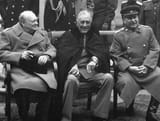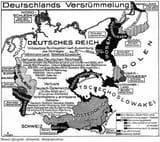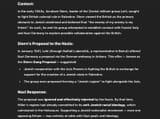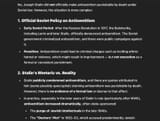>>509442884 (OP)
The Nazi regime in Germany did not eliminate the monetary system, but they significantly altered its function to serve their economic and political goals. They moved away from a reliance on free markets and interest rates, instead using the banking system and credit institutions to fund their rearmament and war efforts. This involved government control over the money supply and interest rates, prioritizing their needs over market mechanisms.
Here's a more detailed explanation:
Government Control:
The Nazi government exerted significant control over the German banking system and credit institutions, dictating how much money was available and at what interest rates. This was a departure from a system where market forces primarily determined these factors.
Funding Rearmament:
A key motivation for this control was to fund their rearmament program, which was a violation of the Treaty of Versailles. They used mechanisms like Mefo bills, a form of government-issued credit, to finance this rearmament without leaving a clear paper trail or triggering international scrutiny.
Economic Self-Sufficiency:
The Nazis aimed for economic self-sufficiency (autarky), but recognized that Germany lacked the resources for full self-reliance. They moved away from free trade and towards a more controlled economy to manage resources and prioritize their goals.
Monetary Policies for War:
The Nazis' monetary policies were heavily influenced by their preparation for and prosecution of war. They manipulated the money supply and interest rates to suit their military objectives, rather than adhering to traditional economic principles.
Impact on the Weimar Republic:
The economic instability of the Weimar Republic, including hyperinflation and the impact of the Great Depression, contributed to the rise of the Nazi Party. This instability created an environment where the Nazis could exploit public discontent and offer solutions that resonated with certain segments of the population.
 7/4/2025, 1:38:05 AM
No.509442884
[Report]
>>509442964
>>509442994
>>509443006
>>509443025
>>509443028
>>509443086
>>509443092
>>509443223
>>509443644
>>509443763
>>509443902
>>509444728
>>509444905
>>509445146
>>509445350
>>509445808
>>509445949
>>509446064
>>509446567
>>509446788
>>509448662
7/4/2025, 1:38:05 AM
No.509442884
[Report]
>>509442964
>>509442994
>>509443006
>>509443025
>>509443028
>>509443086
>>509443092
>>509443223
>>509443644
>>509443763
>>509443902
>>509444728
>>509444905
>>509445146
>>509445350
>>509445808
>>509445949
>>509446064
>>509446567
>>509446788
>>509448662














